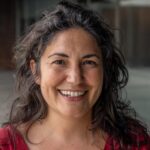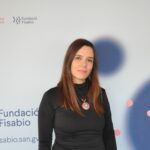Barcelona Institute for Global Health
Barcelona, ES
ISGlobal is a cutting-edge institution with capacity to address global public health challenges through research, translation, and education, with over 469 members from 35 different countries. In October 2019, ISGlobal was named a Severo Ochoa Centre of Excellence by the Spanish State Research Agency, a body affiliated with the Ministry of Science and Innovation. ISGlobal is the only centre in epidemiology and global public health accredited as a Severo Ochoa Centre of Excellence. ISGlobal approach is multidisciplinary, ranging from the molecular to the population level and including disciplines across health sciences, life, environmental, social, economic and climate sciences. The tenure track faculty is integrated by 40 group leaders. The center manages an annual budget of around 35M€ and currently implements 135 international research projects, coordinating 34 of them. ISGlobal researchers publish around 500 indexed articles and reviews annually, the vast majority in high indexed journals (over 80% of papers in Q1 journals).
The Foundation for the Promotion of Health and Biomedical Research of the Valencian Region (FISABIO) is a non-profit entity of a scientific and healthcare nature, whose primary purpose is the promotion and development of scientific-technical, health and biomedical research in the Valencian Community. Currently, the entity assumes the management of the scientific activity of 17 (of the 24) Health Departments of the Valencian Community, providing service to more than 1,500 professionals of the Valencian health network. Likewise, it coordinates the Valencian Network of Biobanks. FISABIO represents the regional government efforts to support policies of public health research, with the aim of obtaining new knowledge and tools to improve population health status and healthcare system.
As part of both ISGlobal and FISABIO, there is a focus on the study of the environment and health. In particular together through the INMA project which is a cohort study in collaboration with other Spanish and international centers that assesses the association between the environment and maternal-infant and adolescent health, as well as the influence of diet and genetics on this association.
Role in the project
ISGlobal coordinates the HELIX, BiSC and INMA Sabadell cohorts with rich data and expertise at the exposure assessment, molecular (epigenetics, microbiome and metabolome) and health phenotype levels. It participates in various tasks in WP1 and 5 and leads two tasks. Task 1.3 on immune-mediated effect of EDCs on cardiometabolic and cardiovascular health and Task 5.3 on the role of the microbiome in the relation of immune-related EDC-effects with health outcomes.
FISABIO, an affiliated partner, coordinates the INMA-Valencia cohort and collaborates in Tasks 5.1-5.3 and 5.5 from the WP 5 with expertise in endocrine disruptors and health effects.
Team
Léa Maitre

Léa Maitre is an Assistant Research Professor and director of the Exposome Hub at ISGlobal, promoting innovation, collaboration and communication about this new field of research. She is the ISGlobal PI for ENDOMIX and task leader on EDCs and microbiome.
During her Ph.D. at Imperial College London, she obtained extensive experience on metabolomics and pregnancy outcomes, acquiring broad knowledge in NMR spectroscopy and advanced statistical methods in molecular epidemiology.
Since then, she has focused on the extension of this field in the Exposome. Her participation in European projects on this topic included the scientific coordination in the HELIX project (2013-2018), task leadership in the ATHLETE project (2020-2024), and WP co-leadership in the International Human Exposome Network project (2024-2026). Her main lines of research include: Exposome in pregnancy, childhood and adolescence; Metabolomics integration in epidemiological studies; Molecular (omics) response to external stressors (chemical, physical, psycho-social) in observational human studies; Exposome, neurodevelopment and mental health.
She has co-authored 67 original peer-reviewed publications (h-index: 26) since first publication in 2014 (80% in first quartile, 60% in first decile) and two book chapters. She translates research results to society through teaching, media outreach, industry partnership and community focus groups.
Mònica Guxens

Mònica Guxens is a Research Professor and Head of the BrainChild Lab at the Barcelona Institute for Global Health (ISGlobal). Her research focuses on the role of environmental factors, including persistent and non-persistent chemicals, on children’s development, in particular on brain development. She has substantial expertise on birth cohorts. She is the Director of the Spanish INMA Project, a multi-site birth cohort.
Martine Vrijheid

Prof Martine Vrijheid is Research Professor and Director of the Environment and Health over the Lifecourse Programme at ISGlobal, and Associated Professor at the Pompeu Fabra University. As environmental epidemiologist, her research is driven by the need to protect vulnerable population groups, in particular children, from the harmful effects of environmental (chemical, physical and social) exposures. She has a demonstrated record of international leadership in child health, environmental pollutants, and exposome research, leading EC-FP7 projects CHICOS (Developing a Child Cohort Strategy in Europe; 2010-2013, €2.5M) and HELIX (Human Early Life Exposome; 2014-2018, €8.6M), H2020 project ATHLETE (Advancing Tools for Human Early Lifecourse Exposome Research and Translation; 2020-2025, €12M), and Horizon Europe project IHEN (International Human Exposome Network; Coordination & Support Action; 2024-2026, €3M). Through these and many other national and international projects, she spearheaded the study of exposome and multi-omics determinants of child health, and was instrumental in building a network and data infrastructure of >30 birth cohorts in Europe. She published ˃370 scientific articles, cited ˃34,700 times (Scopus H-index 85), and is active in a range of international expert panels (e.g. EFSA), advisory boards (e.g. EMBL), and teaching and translational activities.
Maria-Jose Lopez-Espinosa

PhD Maria-Jose Lopez-Espinosa is a senior epidemiologist at FISABIO-Public Health (Spain), head of the Environment and Health Area of said institution, associate professor at the Univ. Valencia, PI of CIBER of Epidemiology and Public Health (CIBERESP: https://www.ciberesp.es/) group 41 of the Carlos III Institute of Health (ISCIII), and coordinator of the Childhood and Environment network (INMA)-Valencia (https://www.proyectoinma.org/) and PAPILONG (https://links.uv.es/0ZFlslW) cohorts. She is an epidemiologist with expertise in endocrine disruptors and their effects on health. She has been/is involved in different European Projects (EDEN, CASCADE, CONTAMED, ATHLETE, etc.), participated in the C8 Health Project in USA (a study on the potential health effects of PFAS in a community adjacent to a Teflon factory in West Virginia), and has been/is taken part in numerous Spanish projects, being the PI in some of them. As a result of this, she has published 97 articles (H index in WOK: 42, ORCID: 0000-0003-1202-8740). She is also involved in numerous teaching activities and committed to an active transfer of results to the general population, through talks, newsletters and social media specifically created to bring science closer to people.

